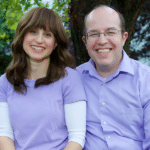Adriana Vela emerges as a dynamic force at the confluence of technology, entrepreneurship, and innovation. As the visionary founder of MarketTecNexus, LLC, she has spearheaded transformative initiatives, navigating the intricate landscape of strategic consultancy with precision. Adriana’s impact extends beyond the business realm; she is a recognized speaker and author, contributing thought leadership to the evolving dialogue on technology’s transformative role. With over two decades of experience, her commitment to staying ahead of industry trends highlights her visionary leadership. Adriana Vela’s journey is characterized by an unwavering dedication to excellence, positioning her as a trailblazer shaping the narrative of success in the dynamic landscape of technology-driven advancements.
Can you elaborate on the intersection of science, philosophy, and spirituality in your approach to improving the human condition?
In a similar fashion as when I was fascinated with technology convergence, curiosity about the intersection of science, philosophy, and spirituality took hold when I was fighting my way back from clinical depression after a car accident in 2014 that effectively knocked me off my rails. During this painful journey, I was surprised to discover the depth of what this experience taught me. Despite many successes and recognitions, I reflected on just how wrong I was about many of my thoughts and beliefs that drove my actions. I dissected different past situations and saw them in a new light. In the course of analyzing previous actions, I captured and learned lessons that I had missed. I was amazed at how wrong I was about many things. This level of reflection and introspection is a type of spirituality that went deeper than all my previous problem-solving deep thinking activity. This new knowledge feeds into the system of philosophical thought and is a cornerstone of wisdom and truth encouraged by critical thinking, reflection, and exploration. For me, science and technology provide the means through research findings and neuroscience-based tools to increase our understanding of the brain’s workings. During my ordeal, my brain was foggy, and it was not working for me. I wanted to regain my executive function and cognitive strength to make it work for me and not against me, and this intersection held the answers I described in the book.
How do you personally integrate the principles you advocate into your own life, and what impact have they had on you?
Life always gives you another chance. It is called Tomorrow. Knowing this alleviates any pressure of having a day here or there where I could’ve done better or if I didn’t practice my principles every day. People waste so much time beating themselves up if they mess up and forget to be compassionate with themselves. Remaining present to your values and goals ensures you don’t fall asleep at the wheel and end up who knows where. The more you practice, the more you integrate and the easier it gets – just like breathing.
As a leader in your field, how has your background and expertise influenced the approach you took in crafting “11 Ways to Improve Your Human Condition”?
Having spent three decades tracking disruptive technologies and their impact on businesses and consumer behavior. My expertise in trends and disruptions led me to assess whether the pandemic would have a long tail, so I felt the urgency to do something. I had already started Brain Science For The Soul in 2019 but set it aside to focus on 11 Ways to Improve Your Human Condition. It was my way of metaphorically giving people a hug and showing them how to navigate emotions and the disruptive effects of the pandemic. I spend a good amount of time helping readers understand the pandemic as a global VUCA event defined as volatility, uncertainty, complexity, and ambiguity. I further break down the two primary drivers of VUCA as volatility – rapid, constant change, and complexity – a multiplicity of variables and unknowns. The side effects are uncertainty and ambiguity. Scientific research has shown that the brain’s primary function is predicting and constantly looking for patterns to determine what resources the body needs. However, when things change constantly, and the only certainty is uncertainty, the brain becomes frustrated and cannot perform its job. The effects of heightened emotions also hijack cognitive executive functions, further impacting our decision-making processes. From the start and even before the first case was identified in the U.S., I knew it would profoundly impact businesses and society despite many who thought it would go away in a couple of months. Leaders with highly developed agility and adaptability pivoted quickly and grew their businesses while other companies were destroyed.
You’ve also authored a new book, “Brain Science for the Soul – Time to Update Your Leadership Playbook.” Can you share a specific example or case study from the book that highlights the practical application of brain science principles in updating the leadership playbook?
When you consider the extent of changes in the expectations, demands, and market dynamics that pose new challenges that leaders grapple with, it makes sense that past leadership playbooks just don’t cut it and must be updated. For example, navigating disruptions is becoming an increasingly crucial challenge for CEOs. The first strategy for CEOs is to consider what I call ‘Transformation Readiness’, where they must first understand the pace and magnitude of disruptions that create a readiness paradox. That requires deep expertise to navigate uncertainty and solve complex problems outside their core knowledge and comfort zone.
Another core difference is that the days of setting a long-range strategic plan and then focusing on executing and staying the course are gone. Today, leaders require strong skills in agility and adaptability. Experience can carry you, but only if that experience is founded on quickly adapting to change and being able to anticipate it. Yet another different dynamic is the call for conscious capitalism. This is not about being ‘woke’. Research shows that 86% of people expect CEOs to lead and speak publicly on societal issues. I see a lot of hand-waving but not an authentic stance on social issues, undermining their efforts to engage and retain employees. Leaders with an ingrained notion that it is all about the bottom line and nothing else end up losing more than they gain. Especially if they came up the ranks learning that transparency is bad and that emotions are a sign of weakness and play no part in business. Yet, it has been proven that every decision we make is emotion-based.
There is no judgment here, and I’m not an armchair quarterback, either. But I do know that being a leader today is exponentially more challenging than three decades ago.
That’s why I developed solutions to address these leadership challenges, which open the door to addressing talent issues and setting the stage for building optimized teams. The result is measurable leadership excellence, decreased attrition cost, increased profitability, and significantly increased productivity, which builds an internal pipeline of next-generation leaders to fuel expansion. All of the concepts and strategies in the book aim to address the above challenges and reinforce what Ralph Nader said, “The function of leadership is to produce more leaders, not more followers.”
For those who may be new to your work, what key message or takeaway do you hope they gain from your books and speaking engagements?
I’d love them to embrace the magic of seeing the relationship between the brain and the Soul and recognize the tremendous power we hold inside us. All we need to do is take steps to learn how to unearth and wield that power with game-changing concepts in my books and talks, including ‘Even the Strong Need Help,’ ‘The Confidence Myth,’ ‘Making Failure your Friend,’ ‘There is no such thing as good or bad emotions,’ ‘The Knowing-Doing Gap,’ and ‘Social Pain is Real Pain.’
Download ‘Brain Science for the Soul’ today!
Published by: Aly Cinco









